The Boy Scouts In Russia - [37]
"And I did not," said the officer, sharply.
The sergeant said nothing more.
Soon the men returned from their fruitless search. Then a litter was improvised and Boris was placed upon it and taken away. Fred had been very fearful for it had seemed more than likely to him that a sentry would be left to watch the wreck. If that had been done, it would have complicated his position, because he could scarcely have hoped to get out of his shelter without making some noise. But this was a precaution that apparently did not suggest itself to the Germans.
And so, as soon as they were well out of hearing, Fred scrambled out, leaving his dangerous coats and helmets behind, and began trudging boldly along the road. He did not know the character of the wooded section through which the road now ran, and it seemed to him that he would be safer in the road than if he tried to walk under cover.
Fred was very tired. And, now that the excitement was fading, he was beginning to realize that he had not escaped entirely scatheless from the wreck of the car. Every bone and muscle in his body was sore and aching, and he wondered how many black and blue spots he would find when he got a chance to look for them.
By Ivan's reckoning, he had something like two miles to go to reach the Russian outposts. He was now in a sort of No Man's Land that lay between the two armies. And, indeed, before long, he saw fires twinkling ahead-the fires of the Russians. That was as he came to the crossroad of which Boris had spoken. It seemed that his troubles must be nearly over. And just then he heard a clatter of hoofs and saw, riding up the crossroad toward him, a troop of German Uhlans. He began running. But they had seen him and gave chase. He dared not stop. On he ran, hoping that the Russians were nearer than their fires. CHAPTER XVII
Suddenly over Fred's head there was a peculiar whistling. He had never heard that sound before, but somehow he knew by instinct what it was. He was under fire! Behind him were the shots, but the firing was wild and at random. He plunged into the bushes now, for to do so was to choose the lesser of two evils. He was fairly safe, so sheltered from the bullets, since if they could not see him, the Uhlans would not be likely to fire at him at all. And while it was certain that they could follow him in and catch him if he stayed in the brush, he would delay them at least, and the Russians were so near that they might hear the firing and come up.
That came about even sooner than he had thought possible. He stopped, panting. The Uhlans were close on his trail by this time, and he heard them coming up. But then came a sudden shouting of orders, and, a moment later, a furious fusillade that was answered from the Russian side. Over the rattle of the firing, too, came a sound he remembered well, though he had heard it only once before-the yelling of charging Cossacks. For the second time the wild Russian horsemen had come to his rescue in the nick of time!
But this time there was more of a fight, since the two little bodies of horsemen were far more evenly matched than had been the case when General Suvaroff had led his daring raid behind the German lines in the effort to capture von Hindenburg. For five minutes the fighting was fast and furious. Fred could hear the clash of steel against steel and the spiteful spitting of revolvers and automatic pistols. Then the wild Russian shout of victory arose, and he heard sounds of galloping fast dying away. Even though he could see nothing, he knew which side had won.
"Thank Heaven!" he said to himself. "I wonder if they couldn't chase them and raid the culvert. There aren't so many troops there! Then we could surely get Boris away from them."
But the first thing to do, of course, was to come out of his cover and make himself known to his rescuers. There was a certain risk in even that simple procedure, and Fred was not so carried away by the excitement of the fight as to forget it. There was more than a chance that if he broke out, the Russians would mistake him for some German who had tried to escape by taking refuge in the brush, and that they would shoot without waiting to make sure. But he had to take the chance, and he minimized the risk as much as he could by tying his white handkerchief to a stick and carrying it before him as he pushed his way into the ditch.
He waved this as he emerged. At first no one saw him. Then a Cossack spied him and sent his horse straight at him. Fred leaped aside as he saw that the man meant to ride him down, and, shouting, waved his white flag. He dodged the first assault, but the Cossack spun his pony around in little more than his own length, and waving his dangerous lance, came at him again. He shouted again, and waved his white flag harder than ever. That would not have saved him, however, but just as the Cossack lunged and Fred threw himself down, sure that he would either be speared or trampled by the horse, an officer dashed up and struck up the lance with his sword.
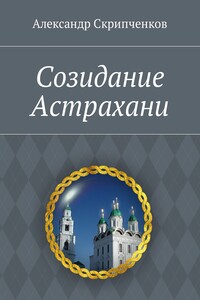
Дорогие астраханцы и друзья нашей замечательной каспийской столицы! В своей книге я хочу предложить вашему вниманию краткий обзор строительства города Астрахани и возникновения крупных подрядных строительных организаций. Труд многих сотен людей воплотился в создании нашего прекрасного города. Я посвятил эту книгу его строителям, созидателям, всем тем, кто своим трудом и талантом на протяжении многих лет создавал образ, красоту и величие города Астрахани. А. И. Скрипченков.
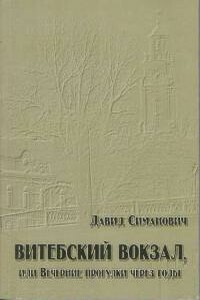
"Витебский вокзал, или Вечерние прогулки через годы" - дневники за полвека (1946-1995 ггю) известного поэта Давида Симановича, автора более двадцати книг поэзии и прозы, лауреата Шагаловской премии и премии имени Владимира Короткевича.
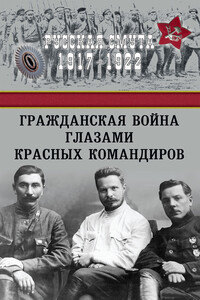
Предлагаемый читателю сборник содержит очерки красных командиров и военных специалистов о Гражданской войне и интервенции. Каждый очерк – рассказ об отдельно взятой кампании или операции, и хотя книга готовилась к изданию в конце 1920-х годов, она не утратила актуальности и по сей день. Все авторы сборника (кроме П.П. Лебедева) – А.С. Бубнов, И.И. Вацетис, А.И. Егоров, Н.Е. Какурин, С.С. Каменев, М.Н. Тухачевский, Р.П. Эйдеман – были репрессированы в 1930-е годы. В настоящее издание не вошли очерки, рассказывающие о советско-польской войне.
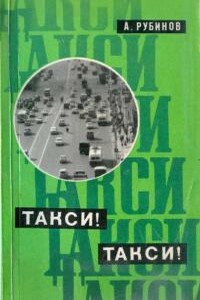
В 1975 году московские таксисты справят свой юбилей. 50-летию появления па столичных улицах машин с шашечками на бортах и посвящается настоящая книга. В книге представлены очерки о сегодняшнем и вчерашнем дне такси. В них рассказывается о Москве и великих преобразованиях происшедших в ней за полвека. Конечно, в центре всех событий - водители такси, их подвиги и приключения, из которых слагается ежедневный нелегкий труд этих людей. Книга рассчитана на массового читателя.
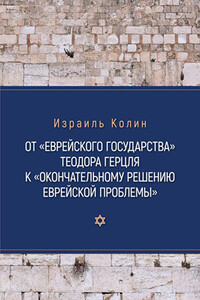
«„Окончательное решение еврейской проблемы“ является естественным продолжением работы Теодора Герцля „Еврейское государство“ для изменившейся политической обстановки на Ближнем Востоке, где образовалось еврейское государство, и новых технических возможностей, появившихся за этот промежуток времени…».
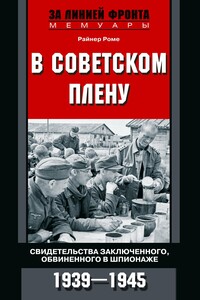
Райнер Роме не был солдатом вермахта, и все же Вторая мировая война предъявила ему свой счет: в 1945 г. в Маньчжурии он был арестован советской разведслужбой по подозрению в шпионаже против СССР. После нескольких месяцев тюрьмы Роме оказывается среди тех, кто впрямую причастен к преступлениям фашистской Германии – в лагере для немецких военнопленных. В своих воспоминаниях Роме описывает лагерное существование арестантов: тяжелый труд, лишения, тоску по родине, но эти подробности вряд ли поразят отечественного читателя, которому отлично известно, в каких условиях содержались узники немецких лагерей смерти. В формате PDF A4 сохранен издательский макет книги.